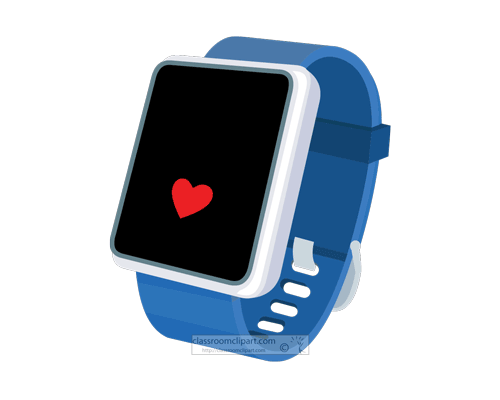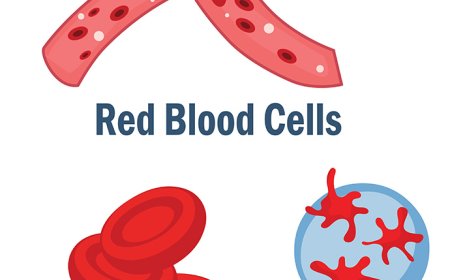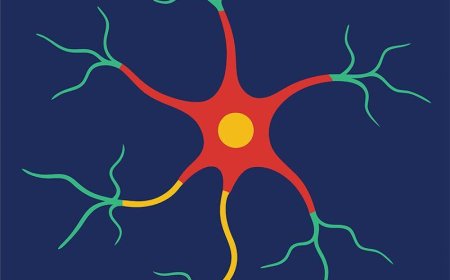Keeping the Circulatory System Healthy: How to Take Care of Your Heart and Blood
Discover how to keep your circulatory system strong in this student-friendly article. Learn how diet, exercise, and good habits protect the heart, blood, and vessels. Includes quiz, vocabulary, and kid-friendly summary.
💓 Keeping the Circulatory System Healthy: How to Take Care of Your Heart and Blood
Your circulatory system is one of the hardest-working systems in your body. Every second, your heart pumps blood through your vessels to deliver oxygen, food, and energy to your cells. It removes waste and keeps everything running smoothly. But like any busy machine, it needs care, rest, and maintenance to stay in good shape. If we don’t take care of it, it can get tired, clogged, or weak—and that can lead to serious health problems.
The good news is, you don’t have to be a doctor or an adult to start building a strong, healthy circulatory system. In fact, the earlier you start, the better! The habits you build today can keep your heart strong for your entire life.
🥗 Why a Healthy Circulatory System Matters
Your circulatory system doesn’t just keep you alive—it keeps you feeling good, thinking clearly, and moving with energy. A healthy system helps:
- Your heart pump efficiently with less strain
- Your blood vessels stay open and flexible
- Your cells get plenty of oxygen and nutrients
- Your immune system fight infections faster
- You feel more energetic, focused, and calm
When the circulatory system is weak or unhealthy, you may feel tired, dizzy, or out of breath. Over time, problems like high blood pressure, clogged arteries, or heart disease can develop, even in teens or young adults if habits aren’t healthy.
🏃♀️ Habits That Keep Your Heart and Vessels Strong
Here’s how to build a healthy circulatory system at any age:
1. Eat Heart-Healthy Foods
Choose foods that fuel your body and support clean, flowing blood. Look for:
- Fresh fruits and vegetables (especially leafy greens and berries)
- Whole grains like brown rice, oats, and whole wheat
- Lean proteins like chicken, beans, tofu, and fish
- Healthy fats like olive oil, avocado, and nuts
Avoid too much salt (can raise blood pressure), sugar (can damage blood vessels), and saturated/fried fats (can clog arteries).
2. Get Active Every Day
Your heart is a muscle—it gets stronger when you move! Try to get at least:
- 60 minutes of movement every day, including walking, biking, dancing, jumping rope, or playing sports. Even short bursts of fun activity help your blood flow better.
3. Drink Plenty of Water
- 6–8 glasses of water a day, more when you’re active—to keep your blood from getting too thick.
4. Get Enough Sleep
Sleep gives your body time to repair and recharge. Children and teens need:
- 9 to 11 hours of sleep each night—poor sleep can stress your heart and slow circulation.
5. Avoid Harmful Substances
- Don’t smoke or vape—these damage your lungs and blood vessels
- Limit caffeine and sugary drinks—they can raise your heart rate
- Stay away from secondhand smoke whenever you can
6. Stay Calm and Breathe Deep
Stress affects your blood pressure and heart rhythm. Try:
- Deep breathing
- Relaxing music
- Talking about your feelings
- Spending time outdoors or with friends
🧠 Signs of a Strong Circulatory System
You may have a healthy heart and blood flow if:
- You have steady energy throughout the day
- Your hands and feet feel warm
- Your heart rate is calm at rest, but rises during activity
- Your skin is pink or healthy in color
- You bounce back quickly after exercise or illness
⚠️ What Can Damage Your Circulatory System?
Over time, unhealthy habits can damage your heart and vessels. Things to avoid include:
- Eating too much processed or fried food
- Sitting for long periods without moving
- Skipping sleep regularly
- Using tobacco or vaping
- Ignoring stress or anxiety
These habits can lead to high blood pressure, weakened heart muscle, hard or narrow arteries (atherosclerosis), and reduced energy or slower healing.
🎉 Fun Facts About Circulatory Health
- A single heart-healthy meal can improve blood flow in just a few hours
- Laughing helps relax your blood vessels and lowers stress hormones
- Your heart gets stronger and beats slower with regular exercise
- Drinking water improves your concentration and circulation
- Your blood pressure is usually lower at night when you sleep
🧠 Vocabulary
- Circulatory system – The system that moves blood through the body
- Artery – A vessel that carries blood away from the heart
- Vein – A vessel that carries blood to the heart
- Hydration – Keeping the body supplied with enough water
- Cholesterol – A substance in the blood; too much can clog arteries
- Blood pressure – The force of blood against vessel walls
- Atherosclerosis – Hardening and narrowing of arteries
- Oxygen – A gas your blood delivers to cells
- Cardiovascular – Refers to the heart and blood vessels
- Nutrient – A substance your body needs to stay healthy
✅ Interactive Quiz: Are You Circulation Smart?
1. What helps make your heart stronger?
A. Lying down all day
B. Skipping meals
C. Exercising regularly
D. Drinking soda
Correct Answer: C
2. What kind of fats are good for your heart?
A. Fried fats
B. Butter and cream
C. Healthy fats like avocado and olive oil
D. Cake frosting
Correct Answer: C
3. What happens if you don’t drink enough water?
A. Your blood flows faster
B. Your blood thickens and slows
C. Your brain gets more oxygen
D. Your heart stops
Correct Answer: B
4. How much sleep do kids and teens need?
A. 4–5 hours
B. 6 hours
C. 9–11 hours
D. 12–15 hours
Correct Answer: C
5. What is a warning sign of poor circulation?
A. Warm hands and feet
B. Fast recovery after exercise
C. Cold hands, fatigue, and dizziness
D. Feeling full
Correct Answer: C
6. What should you avoid to protect your circulatory system?
A. Vegetables
B. Moving around
C. Smoking and vaping
D. Drinking water
Correct Answer: C
7. What is one way stress can hurt your heart?
A. It improves sleep
B. It lowers blood pressure
C. It raises your heart rate and pressure
D. It relaxes muscles
Correct Answer: C
🧒 Kid-Friendly Summary
Your heart and blood vessels need your help! You can keep your circulatory system strong by eating healthy foods, moving your body, drinking water, and getting plenty of sleep. It’s never too early to build good habits that will help you grow up strong and feel your best.























































